Don’t be scared of the technical jargon surrounding Internet Protocol version 6 (IPv6). If lead generation is a major component of your company’s marketing plan, then learning about the latest version of the Internet is a must.
Once you understand what IPv6 is, why it’s important to your business, and how to leverage it, you’ll be able to identify and nurture prospects more effectively and responsibly than you currently do. To learn more, read on or jump ahead to these sections:
- What is IPv6?
- Pros and Cons of IPv6 for Your Business
- How to Take Advantage of IPv6 in Your Business
- Final Thoughts: Start Leveraging IPv6 Now
What is IPv6?
Internet Protocol version 6 (IPv6) is the latest version of the Internet Protocol (IP), which is the system for identifying and connecting devices across the Internet. In essence, your device’s IP address is a series of numbers that tell the Internet where to send emails, articles or other content you want to access.
The Internet Engineering Task Force (IETF) started developing IPv6 in 1998 in preparation for the inevitable exhaustion of IP addresses provided by Internet Protocol version 4 (IPv4). Under IPv4, IP addresses are only 32 bits. A typical IPv4 address looks like this:
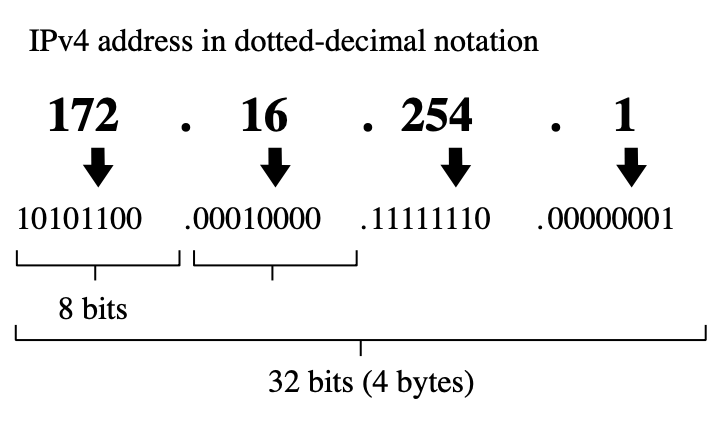
There are only about 4 billion possible 32-bit IP addresses available, a limit the world has long since hit. To accommodate the growing number of devices connecting to the Internet, IP addresses created by IPv6 are 128 bits. A typical IPv6 address looks like this:

With IPv6, there are approximately 3.4×1038 addresses available, or 340 undecillion addresses. Simply put, the world will never run out of IP addresses under IPv6.
Pros and Cons of IPv6 for Your Business
Hypothetically, IPv6 addresses can make it easier for marketing and sales teams to track and nurture leads. In reality, there are a few technical factors that complicate matters.
-
Pro: Better At Identifying Individual Devices
IPv6 addresses are potentially capable of acting as an identifier for each connected device on the planet, which would allow marketers to refine their targeting.
With IPv4, addresses typically describe a group of devices that share a network. For example, a laptop, tablet, mobile phone, and connected TV that belong to a family might be assigned a single IPv4 address. If there are multiple people within that household, marketers are limited in how well they can target a particular individual across devices.
With IPv6, the nearly infinite number of addresses theoretically makes it possible to assign a unique address to each device. Marketers could then associate an address with an individual as opposed to a household, thus making it easier to target that person whether they’re on their phone or laptop. Not only could this help increase conversion rates and customer experiences, but it could also make analytics more accurate.
While this sounds great in theory, there are a few considerations.
-
Con: Less Stable Tracking Technique
Not every device currently uses IPv6. In fact, IPv4 and IPv6 will likely be in use simultaneously for many years.
As of January 2021, only about 33% of people around the world who access Google have an IPv6 address. In the U.S., IPv6 adoption is just above 44%.
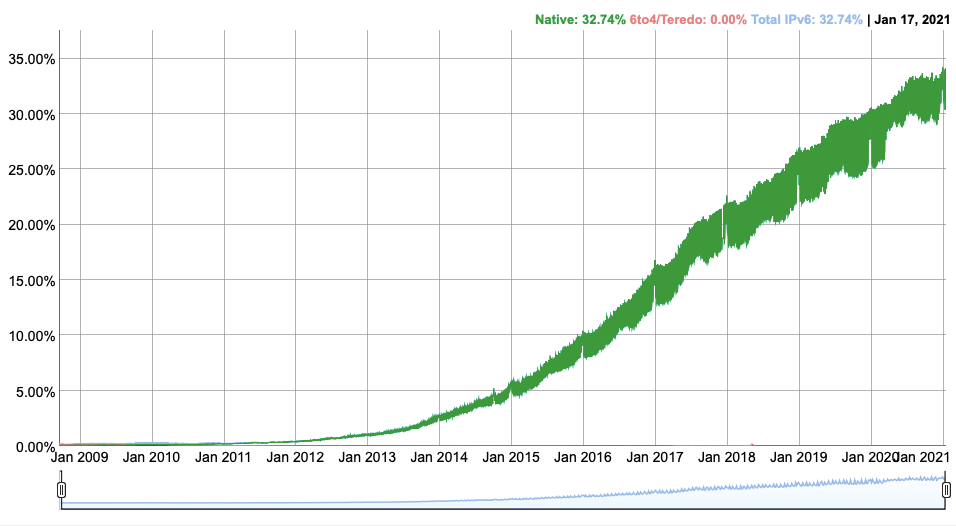
This can create confusion for marketers. For example, a tablet within a household might have an IPv6 address while other devices connected to the same network might share an IPv4 address. To marketers, this would make it appear as though those devices came from two different households.
-
Con: Privacy Issues
Since IPv6 addresses can describe a unique device, you could make the argument that they can identify an individual better than IPv4 addresses. This would classify IPv6 addresses as personal information under privacy laws like the General Data Protection Regulation (GDPR).
IP addresses were never meant to be a tool for marketers or advertisers, which is why the GDPR regulates how companies can use them. However, as you’ll later see, there are ways to leverage IPv6’s benefits while respecting your customers’ privacy.
How to Take Advantage of IPv6 in Your Business
Don’t let IPv6’s shortcomings prevent you from leveraging this new technology. With the right software and strategies, you can identify individual leads and determine how likely they are to buy from your business.
-
Use an IPv6 Tracker
There are countless tools out there that help you gather data about leads so you can better target and nurture them. For example, you could collect info about prospects through a sign-up form like this one:
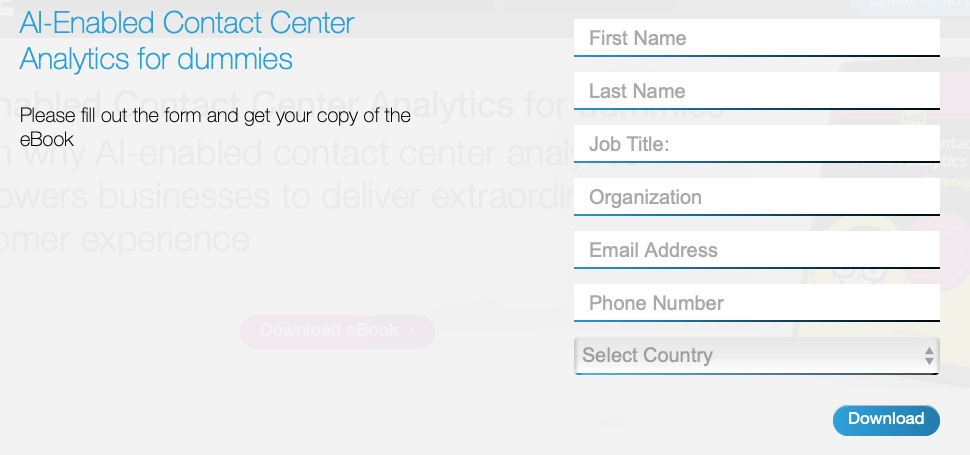
The data would then be sent to your lead intelligence software or customer relationship management (CRM) tool for your marketing and sales teams to review. With this knowledge in hand, employees have a better idea of who might be interested in your company’s product or service.
But what if a visitor to your site doesn’t fill out a form? This doesn’t mean they aren’t a good lead for your business. It also doesn’t prevent you from figuring out who are they or how to contact them.
Lead intelligence software like LeadBoxer can track and do reverse lookups on IPv6 addresses. You can see who is visiting your site, what company they work for, and even what their contact info is, all based on their IP address.
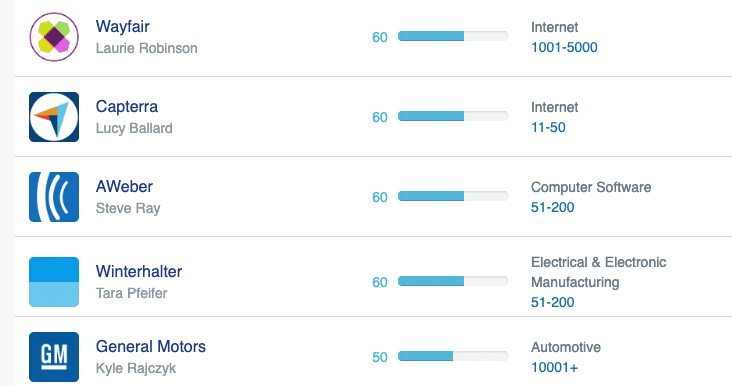
Best of all, this capability works right out of the box, so you can start capturing lead data on autopilot.
-
Create Personalized Customer Experiences
Want to make a stellar first impression? Tailor your website so that it’s even more relevant to prospective customers. You can do this by optimizing pages with content that automatically adjusts based on a visitor’s IP address.
This doesn’t require a ton of leg work or crafting personalized pages from scratch. Consider this example from Quicksprout:
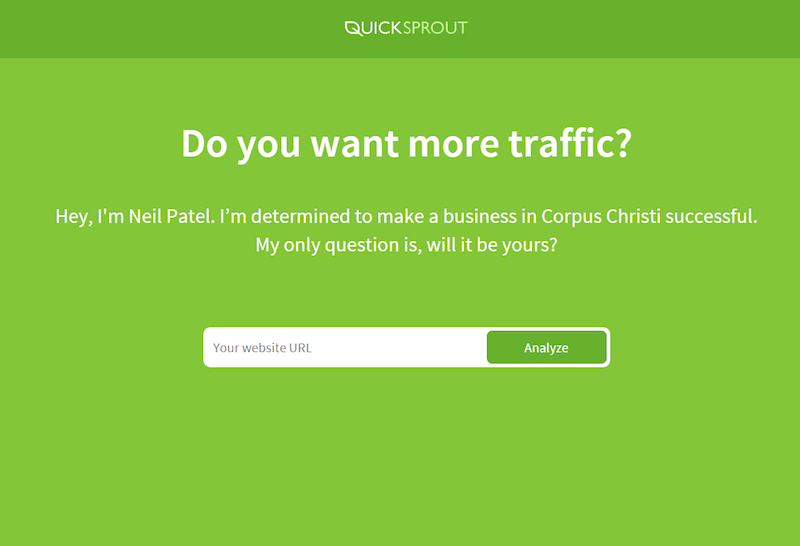
A single element within the copy changes depending upon the visitor’s geographic location. In this case, it’s Corpus Christi. This small detail instantly catches the user’s eye and increases the likelihood that they’ll answer the call to action.
-
Assess “Hot” Prospects
Leadscoring is the process of assigning a prospect a number between one and 100. The number reflects how likely the lead is to buy from your company. The higher the number, the better the prospect. This saves your sales team time by showing them who they should focus their attention on.
Tracking leads via IP addresses can increase the accuracy of a lead score. When you track a particular address, it’s easy to know which pages a prospect has visited or how much time they’ve spent on your site, which is essential for calculating a lead score.
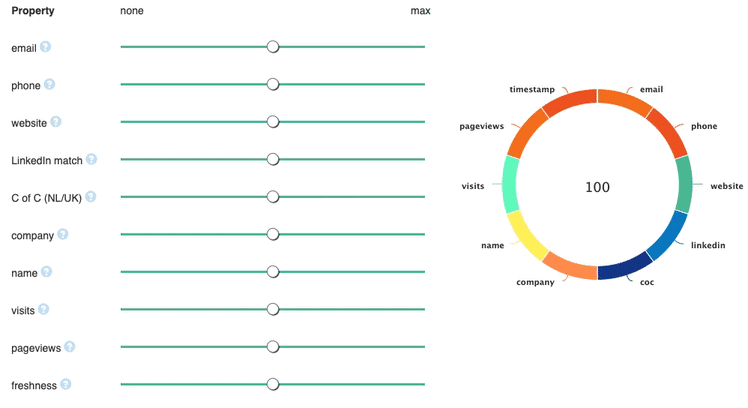
LeadBoxer’s leadscoring tool is completely customizable. You decide which factors are most relevant to your team and how much weight they carry.
-
Update Your Privacy Statement
If you intend to use IP addresses in your lead generation efforts, there are a few legal considerations to keep in mind. In order to be GDPR compliant, companies must include a privacy policy on their website that states:
- What type of information the site collects
- Why this data is collected
- How it’s processed, like where it’s stored and for how long
- What steps you take to keep the info secure
There should also be clear, easy-to-follow instructions for visitors who want their personal information removed or not collected in the first place.
If you use lead intelligence software like LeadBoxer, you’ll need to add a disclosure about the product. Click here for paragraphs that you can copy and paste into your privacy policy.
For a more in-depth look at how to be GDPR compliant, check out this guide.
-
Mask IP Addresses
If you don’t want to disclose the use of LeadBoxer in your privacy policy, you can always enable IP address masking within the software. This feature keeps IPv4 and IPv6 addresses anonymous in the sense that the software won’t record the addresses onto a disk and store them. However, LeadBoxer can continue to identify companies, geographic locations, and other generic data points and be GDPR compliant.
IP masking with LeadBoxer is easy. Simply go to the datasets overview, click the settings icon, then tick the box labeled Enable Ip Masking.
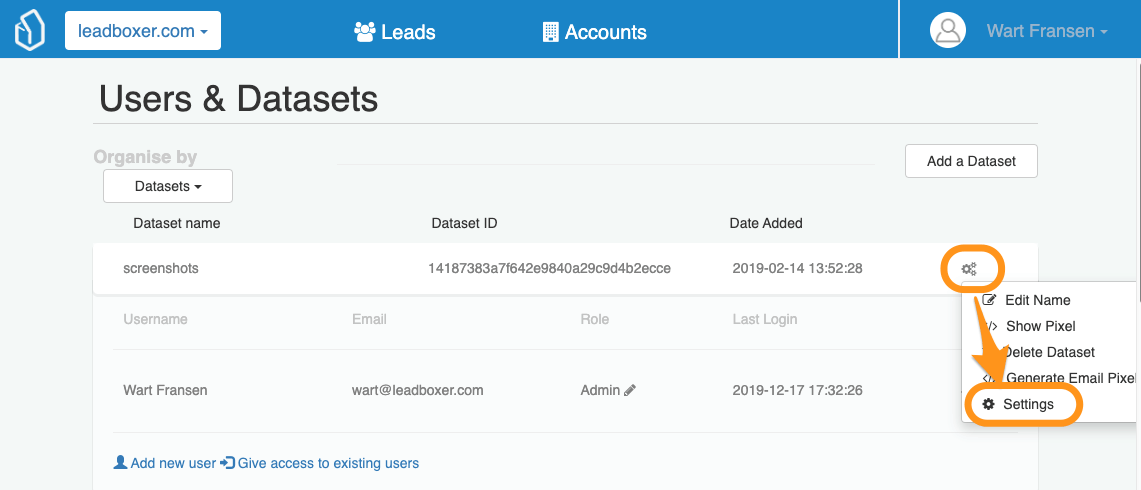
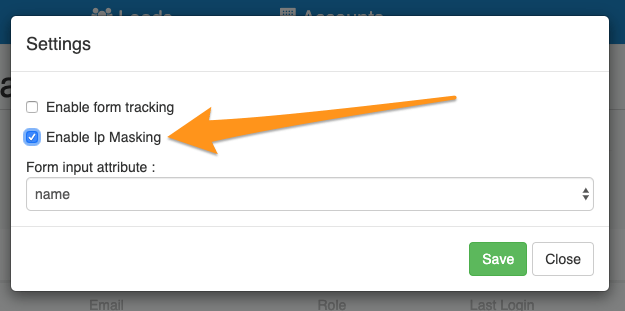
Final Thoughts: Start Leveraging IPv6 Now
Of all the technological advancements that affect marketing and sales teams, IPv6 is perhaps the most important one to understand and prepare for. Adoption is ongoing and IPv6 will likely never be surpassed in our lifetime. In other words, resistance is futile.
Fortunately, there are several advantages to using IP addresses in your business. Tracking IPv6 addresses can give you a detailed picture of who is visiting your site and how engaged they are as a prospect. There are also several lead intelligence tools, such as LeadBoxer, that are already equipped with IPv6 address-monitoring capabilities.
There are some downsides to IPv6, such as privacy infringement. LeadBoxer has an answer for that, too. The IP masking feature makes it easy to stay GDPR-compliant, all without sacrificing any of the benefits of address-tracking, like identifying companies or geographic location.
Want to see for yourself? Get in touch with LeadBoxer and start a free trial today.
